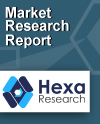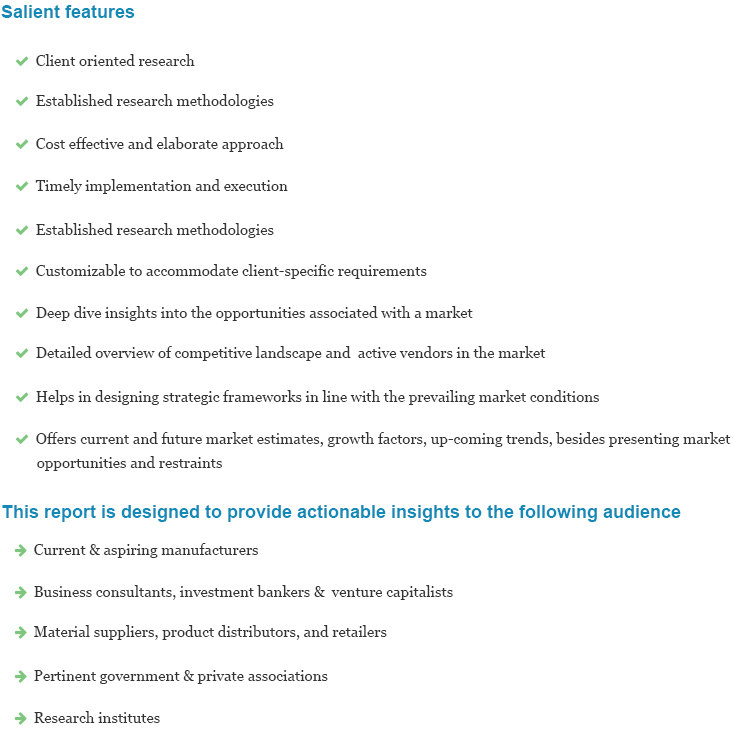
Home Infusion Therapy Market Size, By Product (Infusion Pump, Intravenous Sets, IV Cannulas, Needleless Connectors), By Application (Anti-infective, Hydration Therapy, Chemotherapy, Enteral Nutrition, Parenteral Nutrition, Specialty Pharmaceuticals), Industry Analysis Report, Regional Outlook (U.S., Canada, Germany, UK, China, Japan, Brazil, Mexico, South Africa), Application Potential, Competitive Market Share & Forecast, 2016 - 2024
- Published: October, 2016
- Format: Electronic (PDF)
- Number of pages: 78
- Industry: Medical Devices
In 2015, the global infusion market was valued at USD 13.0 billion. Infusion therapy is the procedure usually performed when oral medication treatments are not effective in the patients. These can be taken up by the patients at home, upon prescription by the physician. The home infusion can be made through a tube placed in the patient’s stomach or through intravenous route. Various therapies are performed at home which includes IVIG treatment, parental management, pain management and antibiotics. Insulin therapy is also carried out at home. It is the most widely used home treatment. After insulin, IVIG and pain killer’s accounts to the majority of the market share.
The change in the lifestyle of the people is enhancing the growth of the global infusion market. Also, increase in the diabetes patients and reduction in the cost of treatment will also boost the growth of the market. With this therapy, many diseases or illness can be treated and thereby reduces stay at hospitals and hence reduces the cost of treatment. With this treatment, the chance of contraction of infections from hospitals also decreases, thereby presenting with increased growth potential. According to Centers for Disease control and Prevention, approximately 20 patients suffer from infections at the time of hospitalization. Additional spending on treatment of the illness that occurs at the date of admission is expected to encourage patients to prefer home care over the conventional.
Home infusion has been proven as a safe and effective alternative to inpatient care for many therapies and diseases. The provider is usually a door close state licensed pharmacy that specializes in infusion therapies to the patient in their homes or other places. This technique is beneficial for patients as they get complete treatment in the comfort of their home.
In 2015, the market share of the infusion pumps was substantially high on account of their extensive integration in delivering nutrients and vital medication at controlled intervals, amounts, and rates. Additionally, wide ranges of benefits are associated with them over the manual administration of medication as they lack in delivering the vital medication at precise and automated rates. Infusion pumps can monitor as little as 0.1 ML per hour injections every minute, injections as requested by the patients with repeated blouses. Infusion pumps can inject controlled amount of fluids beneath the skin or within the skin, they are a very popular local spinal anesthesia for childbirth.
Technological advancements in infusion pumps, such as the addition of safety features like operator alerts and alarms, designed to get activated during the time of its failure, thereby increasing the sale of the pump and helping in boosting the market.
The needleless connector is in a growing phase and will continue to grow as there are a lot of concerns and injuries associated with the conventional needle stick which includes Aids, catheter occlusions, thereby propelling the demand for this industry.
By application, Home Infusion therapy market is segmented into Hydration therapy, Anti-infective, specialty, parental nutrition, Enteral nutrition and Chemotherapy. Hydration therapy utilizes minimally-invasive procedure intravenously to deliver medications, fluids, vitamins and other nutritional supplements directly into the bloodstream to provide relief for a huge number of common illnesses associated with the accumulative effects of dehydration. Anti-infective are drugs that can kill acommunicable agent or restrain it from spreading. Anti-infective include antibacterial and antibiotics, antivirals, antifungals, and antiprotozoal. Parental nutrition alternately called as intravenous feeding is a method of getting nutrition into the body through the veins. It is often used for patients with Crohn’s disease, short bowel syndrome, cancer, and ischemic bowel disease.
In 2015, North America constitutes 45% share in the home infusion therapy market owing to increasing chronic diseases among the people of North America on account of their unhealthy lifestyle and chronic diseases such as AIDS, diabetes, and cancer. The home infusion market in Europe is growing due to increase in old age people and rising recognition of nonhospital methods for the treatment of diseases or illness. Also, increasing number of chronic diseases helps in boosting the growth of the market. Asia Pacific represents the fastest growing home infusion industry due to increasing knowledge of the people on the positive side of home infusion therapy and geriatric population.
Key players in the market include Fresenius Kabi AG, CareFusion Corporation and Hospira, Inc., B. Braun Melsungen AG and Baxter. Collaboration with health care providers is the strategy adopted by these companies to grow in the market.

Choose License Type
- World's largest premium report database
- Transparent pre & post sale customer engagement model
- Unparalleled flexibility in terms of rendering services
- Safe & secure web experience
- 24*5 Research support service
